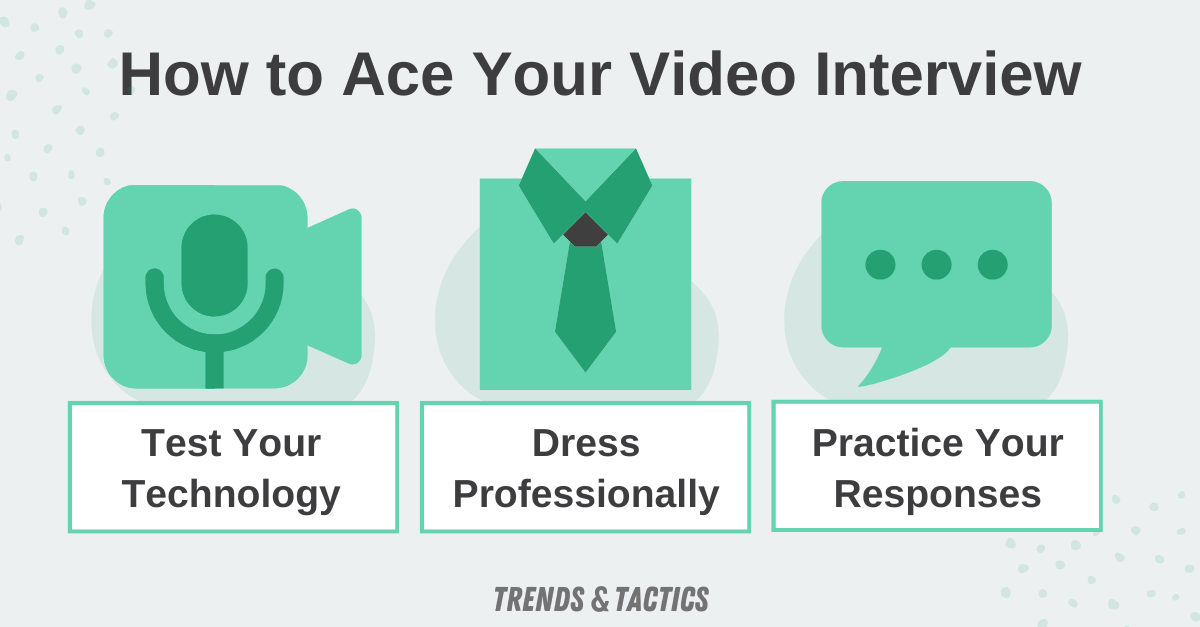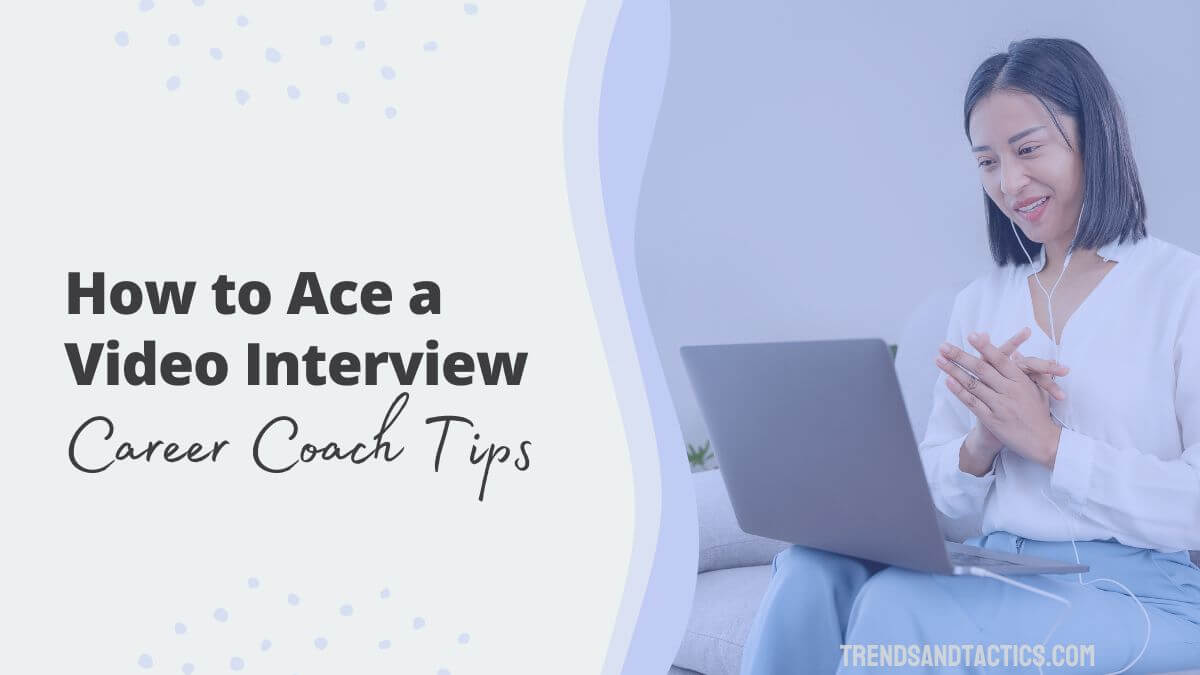With more companies hiring people to work remotely, video interviews are growing in popularity with employers.
This means “acing video interview” needs to be a new skill to add to your job-search arsenal.
The thought of a video interview may make you nervous, but they are not any more difficult than in-person interviews. Let’s explore how to ace a video interview.
What is a video interview?
Companies are using two types of video interviews in their hiring processes.
One is a pre-recorded interview. The company sends you questions to answer and asks that you record yourself answering them in a video.
The second one is what most people think of when they hear “video interview”–the conversation between the interviewer and the job candidate takes place over video.
It will be conducted the same way an in-person interview would be, but both parties participate through online video software.
One recruitment agency found there was a 67% increase in the use of video interviews from 2020 – 2021. Though this was most likely due to pandemic-related concerns, the practice seems to be here to stay.
Whether you are trying to work at a startup or temp agency, the following tips can improve your odds.
Trend on the Rise
According to a 2021 report from Indeed, 82% of employers now use virtual interviews, and 93% of those plan to continue using them in the future. This is a key skill for job seekers to practice–and master!
How To Prepare For A Video Interview
Video interviews do not need to be scary. They just require a little extra preparation, along with following the latest tips for finding a job.
As you consider how to prepare for a video interview, remember that the interview will have a visual component that isn’t as emphasized during traditional in-person interviews.
Yes, what you wear is still important, but so is your location and anything that can be seen within the view of your camera.
Tactic for Success
Be sure to do a test run! Ask a friend or family member to help you make sure your camera, microphone and lighting are all working well. While you have them online, get them to ask you a few questions to let you practice. They can spot any nervous ticks you may be unaware of.
Video Interview Background
When I’ve conducted video interviews as a hiring manager, I’ve found it is easy to get distracted by the candidate’s background or surroundings.
Is that anime on his shelf? Wow, she has a lot of different nail polishes behind her. Yes, it isn’t super professional, but interviewers are human–our minds wander just like anyone else’s.
For this reason you want to ensure your background and surroundings provide the look you want. It’s best to keep the background simple, perhaps by using a blank wall.
Also ensure you are well lit, either with natural light from a nearby window or from a small lamp.
Tactic for Success
Gather the materials you will need during your interview and place them within easy reach. Be sure you have a copy of your resume, a notepad and pen, and a glass of water. It can also be helpful to jot down some talking points that you want to include in your answers to questions.
Get Comfortable With Your Technology
Each computer’s camera and microphone operate differently. Get familiar with your settings prior to the day of the interview.
A friend of mine did a first-round interview with a company via video and the interview seemed to be going great. She could see the interviewer and her responses seemed to resonate.
However, at the end of the interview, the employer mentioned she would like to invite her for a second interview with other colleagues, and she mentioned that she should be sure to use her camera for that one.
She had gone through the entire interview without her camera working! She was mortified!

How can I impress my video interview?

Follow these best practices to ace your video interview:
- Carefully compose your camera shot – Your head and shoulders should be visible with some blank space above your head. Ensure the camera is close to eye level.
- Test your technology ahead of time – You want to be familiar with your computer’s settings for the camera, microphone and internet in case you need to adjust them quickly.
- Dress as professionally as you would for an on-site interview – Yes, you could probably get away with wearing shorts or pajama bottoms, but you will feel more professional if you fully dress the part.
- Eliminate distractions – If you are in a room with a door, close it and place signage alerting visitors to not disturb you. Clear distractions from your desk and silence your phone.
- Be aware of your body language – Nod and smile to show interest. It is also okay to gesture with your hands, but try to eliminate any nervous habits you have like biting your nails.
- Practice your interview responses – Regardless of the interview format, the best way to become good at interviews is to practice. Think of questions you may be asked and practice answering them out loud.
Pre-Recorded Video Interview Tips
If companies ask you to complete a pre-recorded video, consider this to be a screening interview.
They will want to assess if you have the skills for the job, what your motivation is for applying and how well you communicate.
Follow all the guidance above with a couple of additions. Be sure to read all directions and follow them carefully.
Take a few deep breaths before you start recording. Maintain an upbeat and friendly demeanor, which can be hard when you aren’t directing your answers to a real person.
Remember, the better the interview goes, the easier it may be to negotiate your salary later.
Wrapping Up
Video interviews can sound quite scary, but the preparation for them is much like preparing for an in-person interview. Rest assured, if you take time to prepare, you will shine!
Belinda has been a professional writer for more than 20 years and serves as a career coach in her community helping job seekers with all aspects of their job search. Her educational credentials include a bachelor’s degree in Communication Studies and a master’s in journalism.






